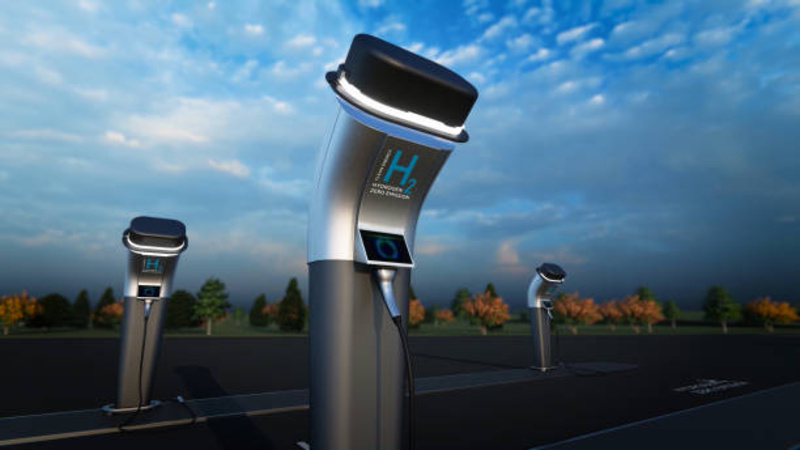Road to Sustainability: Gas Cars vs. Hybrid vs. PHEVs
Jan 20, 2024 By Triston Martin
As we navigate the 21st century, the future of automobiles is a topic of keen interest and debate. Will traditional gasoline-powered cars continue to dominate, or will hybrids and Plug-in Hybrid Electric Vehicles (PHEVs) take the lead? In our pursuit of clean, efficient, and sustainable transportation, each of these options offers its own set of advantages and challenges. This article aims to delve into these different car types, shedding light on their potential roles in shaping the future of personal mobility.
Overview of the evolution of automobiles:
To better understand the future of automobiles, it is important to take a look at their evolution over time. Cars have come a long way since the first gasoline-powered vehicle was invented in 1886 by Karl Benz. From steam-powered vehicles to electric cars, the automobile industry has constantly evolved and adapted to changing needs and advancements in technology.
In recent years, there has been a growing concern about the environmental impact of traditional gasoline-powered cars and their contribution to air pollution and climate change. This led to the emergence of alternative fuel vehicles, such as hybrids and PHEVs.
Gas Cars:

Gasoline-powered cars have been the dominant mode of transportation for over a century. They offer convenience, affordability, and high performance. However, their reliance on fossil fuels has raised concerns about sustainability and environmental impact. As we move towards cleaner energy sources, it is likely that gas cars will continue to be phased out in favor of more environmentally friendly options.
How gas cars work?
Gas cars, also known as Internal Combustion Engine (ICE) vehicles, work by burning gasoline to power the engine. The fuel is injected into a combustion chamber where it is ignited by a spark from the spark plug. This creates controlled explosions that push pistons and turn a crankshaft, generating rotational energy that powers the car's wheels. Gas cars typically have a range of up to 500 miles on a full tank, making them ideal for long-distance travel.
Advantages and disadvantages of gas cars:
Advantages:
- Affordable: Gas cars are generally more affordable compared to other car types. They have a lower upfront cost and require less maintenance.
- Easy to fuel up: With gas stations widely available, it is easy to find a place to fill up your tank, making it convenient for long-distance travel.
- High performance: Gas engines provide high power and torque, resulting in a smoother and faster driving experience.
- Familiar technology: Gas cars have been around for a long time, making them familiar to both drivers and mechanics.
Disadvantages:
- Environmental impact: Gasoline-powered cars emit harmful gases such as carbon dioxide, nitrogen oxides, and particulate matter, contributing to air pollution and climate change.
- Reliance on fossil fuels: Gas cars depend on a finite resource, making them unsustainable in the long run.
- High fuel consumption: Gas engines are not very efficient and can require frequent refueling, resulting in higher fuel costs.
Hybrid Vehicles:
Hybrid vehicles combine a gasoline engine with an electric motor and battery, providing the benefits of both gas cars and electric cars. They are designed to improve fuel efficiency and reduce emissions, making them a popular option for environmentally conscious drivers.
How hybrid vehicles work?
Hybrid vehicles use regenerative braking technology to capture energy lost during braking and store it in their battery. This energy is then used to supplement the gasoline engine, reducing the amount of fuel needed for operation. Hybrids also have a smaller gas engine compared to gas cars, allowing for greater efficiency.
Advantages and disadvantages of hybrid vehicles:
Advantages:
- Fuel efficiency: Hybrid vehicles can achieve significantly higher MPG (miles per gallon) compared to gas cars, reducing the amount of fuel consumption and emissions.
- Environmentally friendly: By using a combination of electricity and gasoline, hybrids emit fewer harmful gases, making them more environmentally friendly.
- Tax incentives: In many countries, there are tax credits or exemptions for hybrid vehicles as they promote cleaner transportation methods.
Disadvantages:
- Higher upfront cost: Hybrid vehicles tend to have a higher price tag compared to gas cars, which can be a barrier for some buyers.
- Limited electric range: Due to their smaller battery size, hybrids have a limited all-electric driving range, making them less suitable for long-distance travel.
Plug-in Hybrid Electric Vehicles (PHEVs):
PHEVs are similar to hybrids, but with a larger battery that can be charged by plugging it into an external power source. This allows them to operate on electricity alone for a certain distance before switching to gasoline mode.
How PHEVs work?
PHEVs use a combination of gas and electricity to power the car. When the battery is depleted, the gas engine kicks in to provide power. The battery can also be recharged by plugging it into a standard electrical outlet or charging station, allowing for extended all-electric driving range.
Advantages and disadvantages of PHEVs:

Advantages:
- Reduced emissions: As with hybrids, PHEVs emit fewer harmful gases compared to gas cars, making them a more sustainable option.
- Longer electric range: With a larger battery size, PHEVs can travel longer distances on electricity alone compared to hybrids.
- Greater fuel efficiency: PHEVs use less gasoline and have a higher MPG compared to traditional gas cars, reducing the cost of refueling.
Disadvantages:
- Limited charging infrastructure: PHEVs require access to charging stations or outlets, which may not be widely available in some areas.
- Higher upfront cost: Similar to hybrids, PHEVs can have a higher price tag compared to gas cars.
The future of alternative fuel vehicles:
As the world shifts towards cleaner and more sustainable energy sources, the demand for alternative fuel vehicles will continue to rise. In addition to hybrids and PHEVs, all-electric vehicles (EVs) are also gaining popularity as a viable option for transportation. With advancements in technology and infrastructure, it is possible that these alternatives will soon become the norm, replacing gas cars as the primary mode of transportation.
Conclusion:
Gasoline-powered cars have been the dominant form of transportation for over a century, but with increasing concerns about the environment and sustainability, alternative fuel vehicles are becoming more prevalent. From gas cars to hybrids and PHEVs, these options offer various benefits and challenges. As technology continues to evolve, it is essential to consider the impact of our transportation choices on the environment and make informed decisions for a greener tomorrow. So, it is up to us to choose the best option that suits our needs and contributes towards a cleaner and healthier planet for future generations.

Accessing Your Tax History: How to Get Copies of Past Tax Returns
This comprehensive guide provides step-by-step instructions on accessing past tax returns, emphasizing their importance for financial decisions and resolving IRS issues.
Jan 18, 2024 Triston Martin

14 Retirement Money Management Strategies for a Secure Future
Discover essential tips for effective retirement planning, including strategies for maximizing savings and ensuring a financially secure future.
Mar 21, 2024 Triston Martin

SoFi Banking Review: Is It Worth Switching to Earn 2.50% APY with Direct Deposit?
Read our comprehensive review of SoFi banking and discover how you can earn an impressive 2.50% APY on your savings when using direct deposit.
Jan 16, 2024 Susan Kelly

What is Comenity Bank: An In-Depth Exploration of Its Credit Card Offerings
Discover Comenity Bank and explore if its credit cards suit your needs. Uncover perks and features in this guide to make an informed financial decision.
Jan 19, 2024 Susan Kelly

What You Should Know Before Hiring a Contractor
This comprehensive guide provides crucial insights for hiring a contractor for your construction or remodeling project, highlighting aspects like cost structure, insurance coverage, and effective project management.
Jan 19, 2024 Susan Kelly

Form 1040-A for U.S. Individual Tax Filers and Long-Term Implications
Learn all about Form 1040-A and how it impacts the USA’s individual tax filers in the long run. Discover strategic tax planning.
Dec 25, 2023 Triston Martin